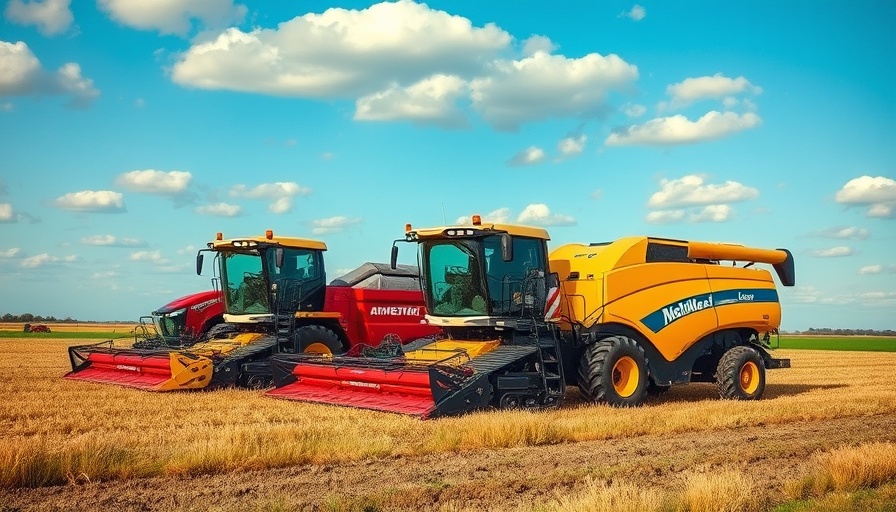
The Complex Web of Agribusiness in the USA
The recent documentary, "Agribusiness in the USA - The Dark Side of Productivity and Profitability," provides a stark lens into the world of industrial farming—a sector thriving on productivity, yet fraught with ethical dilemmas. In places like Kansas, humongous feedlots epitomize the meat industry, where cattle are fattened under controversial practices criticized for lacking humane treatment. The profit-driven approach overshadows the environmental costs and the consequences for small farmers, steering the discussion towards accountability for agribusiness practices.
In 'Agribusiness in the USA - The dark side of productivity and profitability,' the documentary explores the complex landscape of modern farming, shedding light on ethical and environmental issues.
Excesses and Backlash Against Industrial Farming
In California, the stranglehold of companies like Bolthouse Farms has raised more than eyebrows as groundwater depletion becomes a pressing issue for local farmers. Communities there are uniting against these giants, revealing the tension between local agriculture and corporate greed. Jake and Charlie, leading a boycott, represent the growing concern that excessive pumping for profit cannot continue without dire ecological repercussions. Such grassroots efforts showcase a paradigm shift in public sentiment—corporate accountability must be prioritized.
Profit vs. People in the Poultry Sector
Turning to North Carolina, the industrial-scale poultry industry brings the conversation to the health implications of concentrated animal feeding operations (CAFOs). Activists like Larry Baldwin emphasize the environmental degradation and health risks posed by these practices to nearby communities, confirming what many already fear: profit is prioritized over public health.
Regenerative Farming as a Remedy
Amid these grim realities, a glimmer of hope emerges through regenerative farming—an alternative championed by passionate individuals like Rosie Burroughs. By using sustainable farming practices, they aim to rejuvenate the soil and create a more ethical food system. The call for consumers to support such practices is critical; it signifies a shift towards agricultural practices that respect both nature and humanity.
As we examine "Agribusiness in the USA," it is evident that the issues are multi-faceted. We are all part of a larger narrative that includes not just the ethics of farming but also the environmental sustainability it requires. In this modern age, increasing consciousness about our agricultural practices is not merely a choice but an essential movement towards justice—situating accountability at the forefront of our food system.
 Add Row
Add Row  Add
Add 




Write A Comment